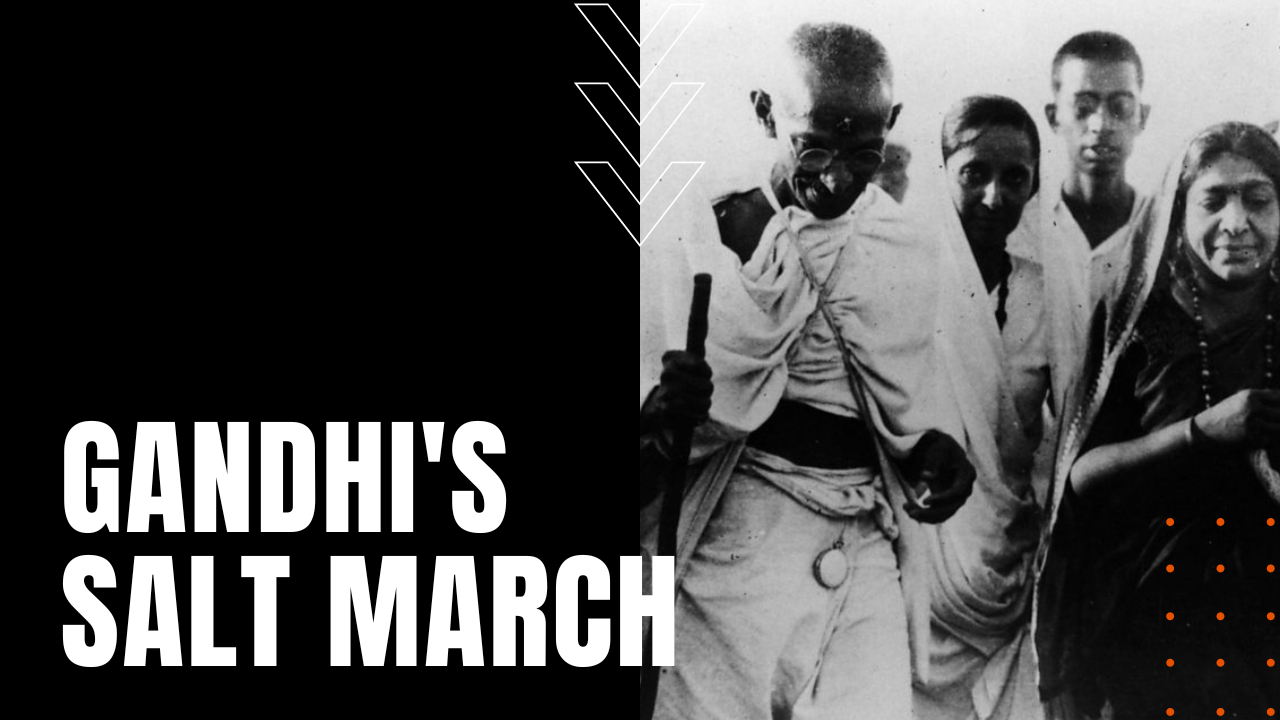Gandhi’s Salt March

After spending two decades in South Africa, helping Indian expats fight for their civil rights, Mahatma Gandhi returned to his native country in 1915, with the goal of ending Great Britain’s harsh rule over the nation of India. Looking for ways to defy British authority, Gandhi focused on Britain’s Salt Act of 1882, which prohibited the sale or collection by Indians of one of their national staples, creating a heavily-taxed monopoly on the production and sale of salt throughout the Indian subcontinent. In short order, Gandhi declared his new campaign of “satyagraha” or mass civil disobedience, sending a letter to British Viceroy Lord Irwin on March the 2nd, 1930, indicating that he planned to defy the Salt Laws in ten days’ time.
Salt March Begins
Departing his ashram at Sabarmati with several dozen followers on March the 12th of that same year, Gandhi began his 240-mile trek to the Coastal town of Dandi on the Arabian Sea, addressing large crowds as he went that saw an increasing number of Indians join in his salt satyagraha, which exploded to over ten thousand protester by the time he reached Dandi on April 5th.
Government Pushback Fails
Despite a local police force that stomped on salt deposits washed up on Dandi Beach, Gandhi and his protesters began to collect small lumps of natural salt from the mud, at the same time igniting mass salt protests throughout India, including Bombay and Karachi, where citizens across the nation began to make their own salt.
Protest Grows
More than 60,000 Indians were arrested because of Gandhi’s salt protest, including Gandhi himself on May the 5th. Later released from prison in January of 1931, during a meeting with Lord Irwin, Gandhi agreed to call off the salt satyagraha in exchange for a negotiating role in an upcoming London conference on India’s future.
Indian Independence
Traveling to England for the conference, Gandhi saw little progress toward Indian independence, however, his presence united British leaders on the notion that Gandhi was a force not to be suppressed or ignored. India finally gained her independence in August of 1947, just six months before Gandhi was assassinated by a Hindu extremist, making Gandhi’s Salt March, a groundbreaking milestone in nonviolent civil disobedience.
